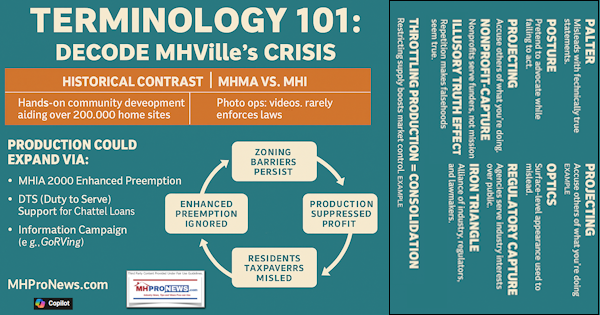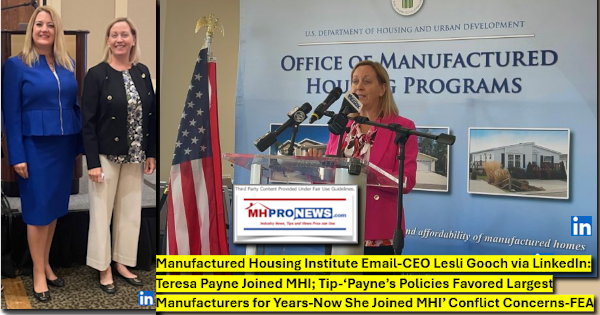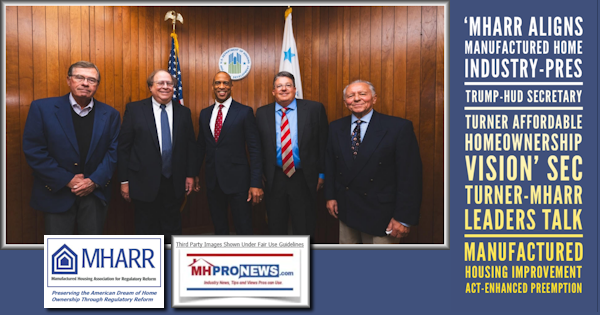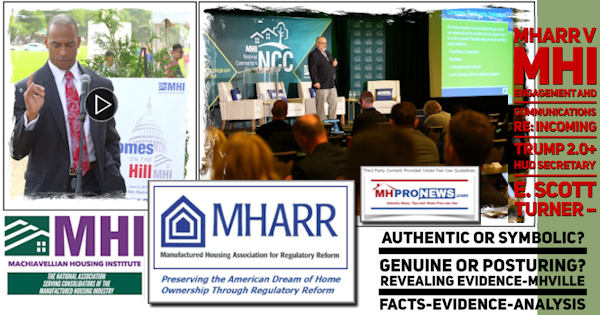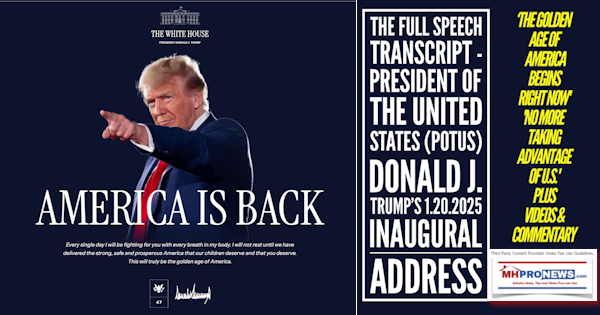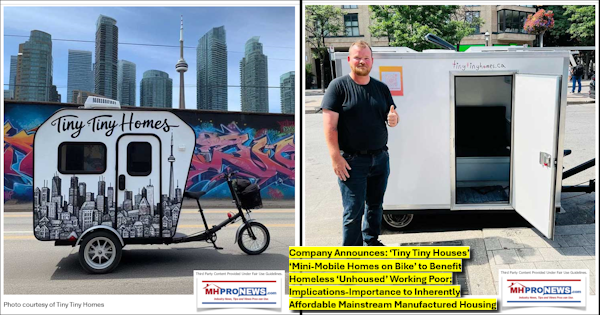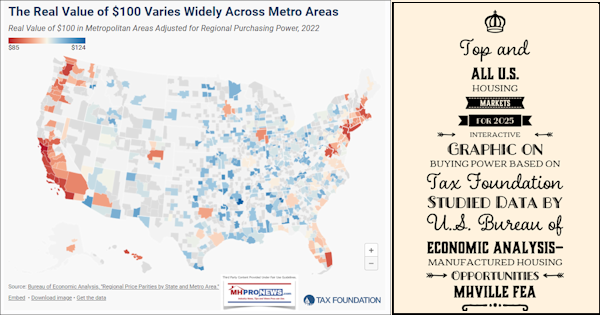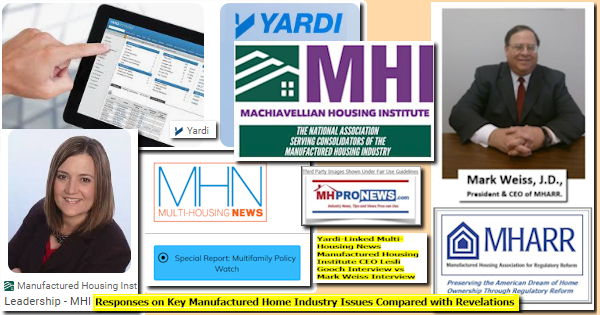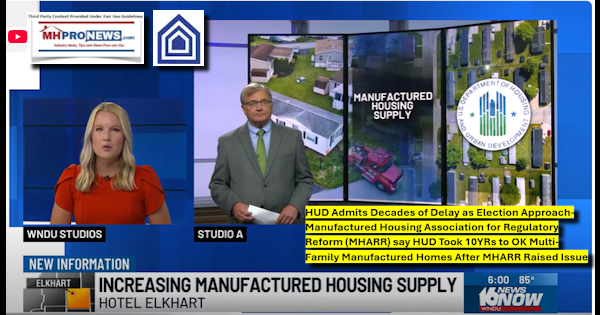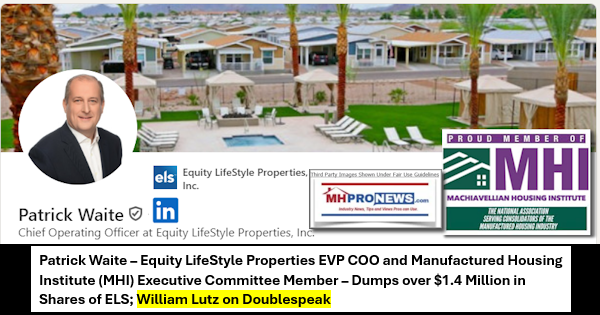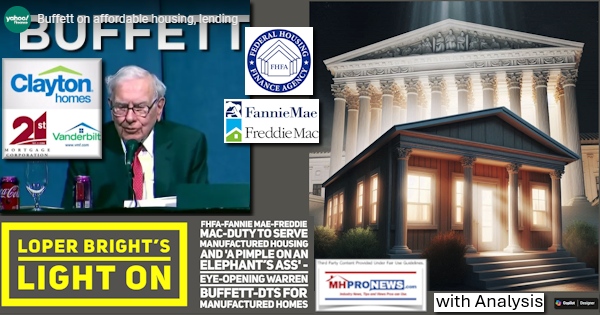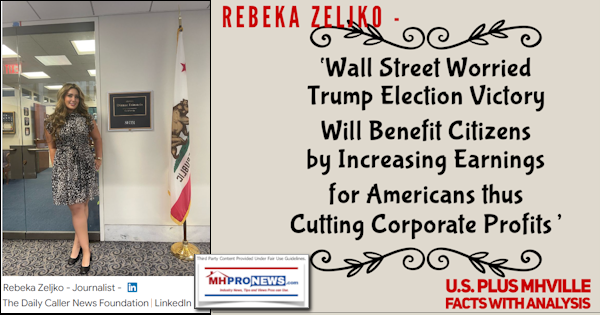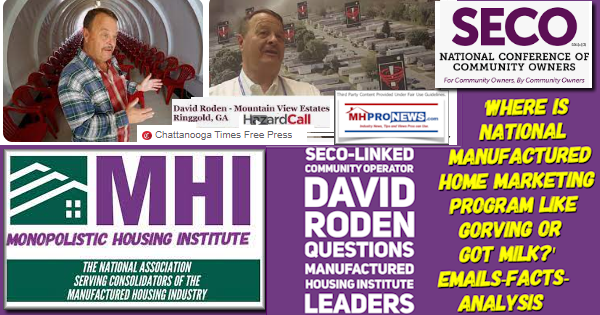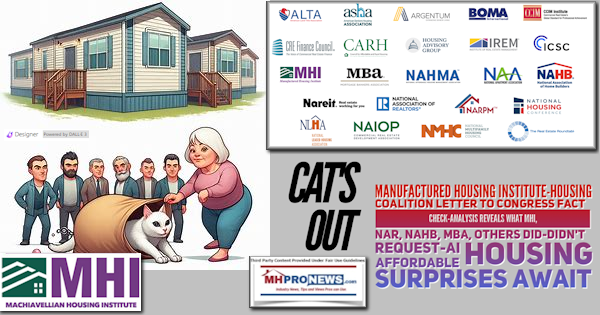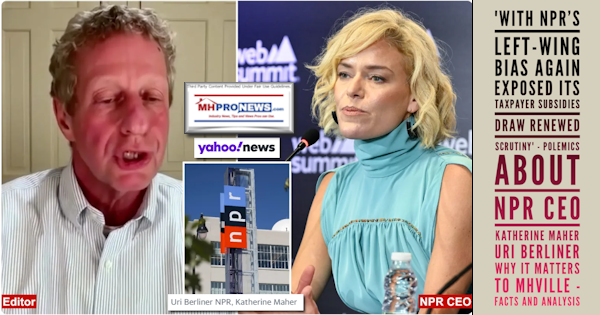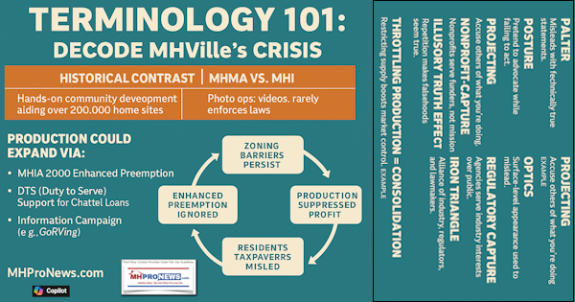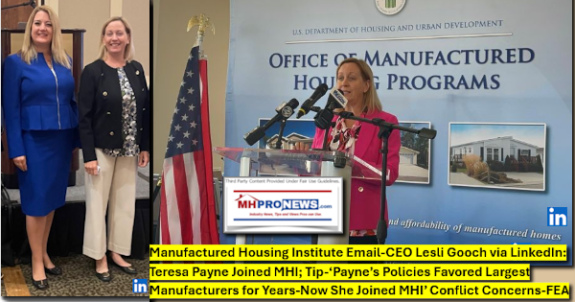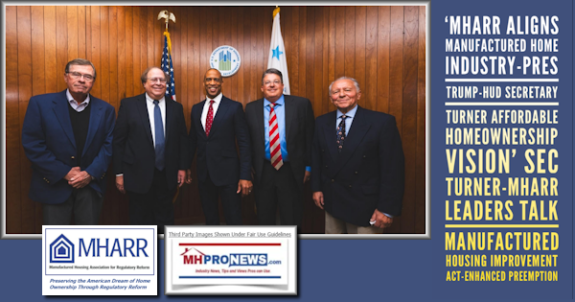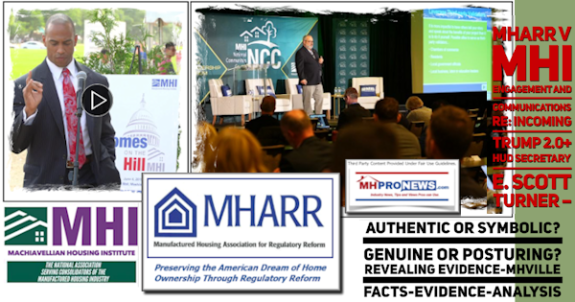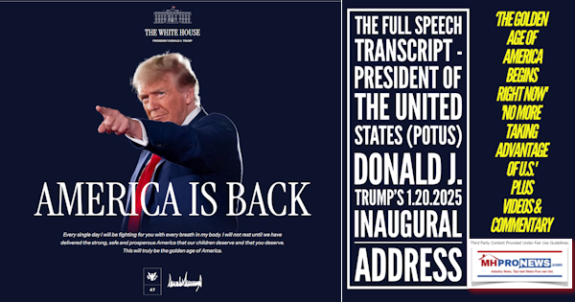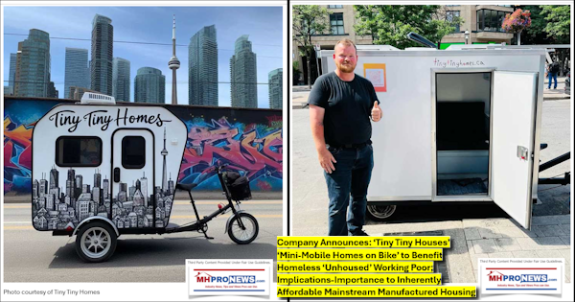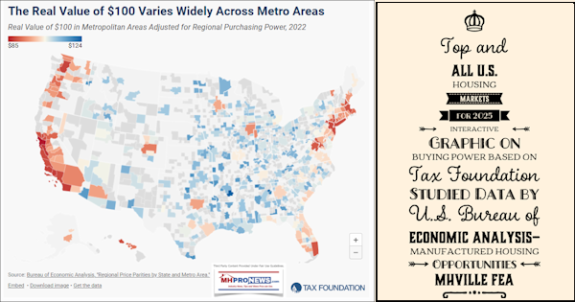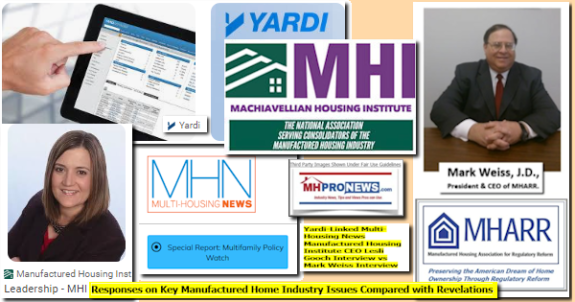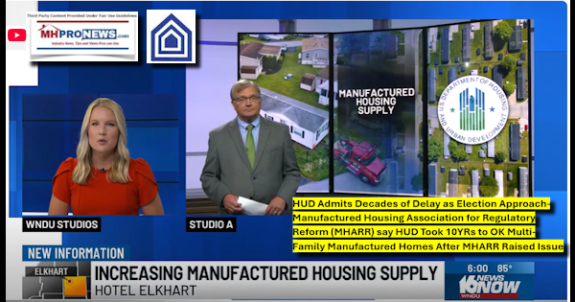A letter came to my attention that was circulated via email. The letter which follows my introduction here addresses the growing concern over HUD’s ‘handling’ of the Manufactured Housing Consensus Committee, or MHCC. The MHCC is a critical body from the Industry’s perspective. The MHCC exists to protect the interests of both the Industry and the public, while providing safeguards for all concerned. If you are in the Industry, the MHCC is important to you!
Sadly, too many in the HUD Code Industry fail to recognize the importance role that the MHCC is intended to play. So as you dig into this topic with me, you’ll see that indeed “storm clouds are gathering” over the MHCC and HUD officials’ recent actions regarding the MHCC is an import issue! The Manufactured Home Industry obviously needs Manufactured Homes that are appealing, durable, well designed, safe and affordable. The MHCC was designed to play a key role in that process.
In the memo that follows this introduction below, the concerns are being expressed by officials at MHARR, one of the two national Industry trade organizations. Certainly the concerns are also true among members of the MHCC and others in the HUD Code Home Industry regarding the ‘handling’ of the MHCC by HUD.
To put it bluntly, many believe that some at HUD are trying to neuter the MHCC, and strip it of its legally established status ‘check valve’ status.
The MHCC was established by the Manufactured Housing Improvement Act of 2000 (MHIA 2000), so it has a legal status. The MHCC exists as a check point to keep HUD, the federal government or other forces from arbitrarily imposing their will upon the Manufactured Housing Industry, notably in the construction of homes and construction-related regulations.
Regarding the MHCC, the MHIA of 2000 says in part:
‘‘(3) CONSENSUS COMMITTEE.—
‘‘(A) PURPOSE.—There is established a committee to be known as the ‘consensus committee’, which shall, in accordance with this title—
‘‘(i) provide periodic recommendations to the (HUD) Secretary to adopt, revise, and interpret the Federal
manufactured housing construction and safety standards in accordance with this subsection;
‘‘(ii) provide periodic recommendations to the Secretary to adopt, revise, and interpret the procedural and enforcement regulations, including regulations specifying the permissible scope and conduct of monitoring in accordance with subsection (b);
‘‘(iii) be organized and carry out its business in a manner that guarantees a fair opportunity for the
expression and consideration of various positions and for public participation; and
‘‘(iv) be deemed to be an advisory committee not composed of Federal employees.”
(Note: the parenthetical addition of the word HUD – short for Dept of Housing and Urban Development – used above was added for clarity).
In fact, this might be an appropriate place to share the purpose of the Manufactured Housing Improvement Act of 2000 or MHIA of 2000, which Congress passed and the president signed into law. Here it is:
SEC. 602. FINDINGS AND PURPOSES.
‘‘(b) PURPOSES.—The purposes of this title are—
‘‘(1) to protect the quality, durability, safety, and affordability
of manufactured homes;
‘‘(2) to facilitate the availability of affordable manufactured
homes and to increase homeownership for all Americans;
‘‘(3) to provide for the establishment of practical, uniform,
and, to the extent possible, performance-based Federal construction
standards for manufactured homes;
‘‘(4) to encourage innovative and cost-effective construction
techniques for manufactured homes;
‘‘(5) to protect residents of manufactured homes with
respect to personal injuries and the amount of insurance costs
and property damages in manufactured housing, consistent
with the other purposes of this section;
‘‘(6) to establish a balanced consensus process for the
development, revision, and interpretation of Federal construction
and safety standards for manufactured homes and related
regulations for the enforcement of such standards;
‘‘(7) to ensure uniform and effective enforcement of Federal
construction and safety standards for manufactured homes;
and
‘‘(8) to ensure that the public interest in, and need for,
affordable manufactured housing is duly considered in all determinations
relating to the Federal standards and their enforcement.’’
(Note: bold lettering above added for emphasis).
For those of you who are ready to read the entire MHIA of 2000, we have posted the entire Act at this link,
http://mhmsm.com/downloads/Manufactured_Housing_Improvement_Act_of_2000.pdf
with the Manufactured Housing Improvement Act of 2000 found starting on page 55.
We are a pro-Industry publication. We are here to provide news and views you can use. We’ve often stated – and will restate again – the fact that www.MHMarketingSalesManagement.com as an Industry Trade publication is neutral and doesn’t ‘parse’ or attempt to analyze who says what among trade organizations, etc..
www.MHMSM.com does from time to time, point out the well known fact that there are differences in the reporting between national associations or others in the industry, a point made in my article in the May issue on the MHCC’s April 2010 meeting in Tulsa, OK.
In researching the memo below and asking HUD, industry leaders and others to share their perspectives on this, it should be noted that no one stepped forward to speak ‘on the record.’ Yet virtually everyone I contacted had something to say off the record! Now that fact is in itself is telling, because here in America, we should feel comfortable and safe sharing our candid views that are stated intelligently, respectfully and without histrionics or hyperbole. We call that ‘freedom of speech!’
One of the comments that came in to me off the record while researching this article below is quoted extensively here:
“I want to begin by thanking Danny Ghorbani for sharing the information on the recent MHCC meeting in Tulsa with the public. Shortly before the meeting, MHCC members were informed that certain governmental bodies had found that the MHCC is a Federal Advisory Committee and, as such, must follow the Federal Advisory Committee Act (FACA). Due to this ruling, HUD:
- Re-wrote the MHCC Bylaws. In the past, the MHCC re-wrote the Bylaws and voted to accept, reject or amend them with HUD’s final approval. Under FACA, HUD writes and approves the MHCC Bylaws.
- Decided during the Tulsa MHCC meeting that certain non-committee members were allowed to speak, while others were not, an action which shocked many of us, but HUD is now in charge of the meetings.
- Dissolved the MHCC Planning & Prioritization Subcommittee, which is a very critical action. This subcommittee received all proposed changes to the manufactured housing standards of construction, and assigned each a priority and to a specific subcommittee to develop a recommendation for the full MHCC’s action.
- Totally took over the function of developing an agenda for the meeting, down to which specific items would be discussed by each subcommittee during their meetings. In the past, the chair would ask subcommittee chairs how much time they wanted scheduled for their meetings and try to accommodate them. We would also try not to schedule the subcommittee meetings concurrently so a person could be an active member of more than one subcommittee. The Chair of the Subcommittee then set the agenda according to the priorities and other actions subcommittee members wanted to discuss.
- Personally, I also disagree with the decision by HUD and/or the current administration in Washington, DC regarding lobbyists serving on federal committees. According to HUD, if a person is a registered lobbyist (and many of the employees of national and state organizations are lobbyists), they cannot serve on the MHCC. I believe that in many cases, these employees of state and national organizations are excellent candidates for the MHCC. Often they represent various segments of the industry and speak with a variety of industry members over time. In most cases, they would certainly be better candidates for MHCC positions than someone who has never been in a manufactured home before (and this has happened).
I believe this change in how the MHCC is controlled by HUD is something which must be brought before Congress. I do not believe it can be repaired at any lower level.”
It should be noted that industry voices tell me that it is doubtful at least that Congress intended the Federal Advisory Committee Act (FACA) to apply to the MHCC, nor was the interpretation used from the outset of the functioning of the MHCC.
To rephrase that, applying the FACA to the MHCC is a recent and novel approach by HUD towards this Industry and public representative body.
What I’d like to urge Industry readers is to get into the meat of this issue, and then communicate your perspective to MHI, MHARR and directly to HUD on how you see the handling of the MHCC.
I’d point out that Danny Ghorbani and MHARR themselves are suggesting that this issue can and should be addressed by the Industry – and he mentions both MHI and MHARR as representing Industry interests – with HUD first.
Most of my sources tell me that this is an issue that won’t go away; in fact it will continue to heat up in the days ahead. So the storm clouds gather, because the MHCC plays a vital and often misunderstood or under appreciated role in our Industry.
MHARR often sends us news items, as does MHI. We post both organizations’ news routinely, and both get widely read on our Ezine. This particular item below came to me from a third party, and NOT from MHARR directly.
Against this backdrop, let me share the unedited letter below which sparked this research, as it relates to this topic of the MHCC and HUD’s recent actions.
============= start of MHARR letter ============
Ms. Susan Brenton, MHCC Chair
Mr. Bill Lagano, MHCC Vice Chair
Dear Susan and Bill:
I am writing to follow-up on the significant response that we have received regarding the April 2010 MHCC meeting in Tulsa, Oklahoma.
As you both know first-hand and, unfortunately, had to endure, what occurred at this meeting was outrageous and should be unacceptable to all federal program stakeholders. Nor should it be tolerated, either by the leadership of the Committee or by Committee members who should be committed to the role, authority, functionality and independence of the MHCC.
We understand, for example, that as the MHCC Chair, you were barred from even recognizing MHARR’s representative for a question or comment, while Department employees, consultants, contractors and other special interests were allowed to speak based on the formality of a “request” by a Committee. This is censorship that undermines the Committee’s access to the collective experience, knowledge, expertise and institutional memory of the regulated party that has been painstakingly accumulated in the nation’s capital over the course of four decades, and that is simply not available from any other source. In addition, it deprives Committee members of essential information relevant to their deliberations and votes on issues that are crucial to the industry and consumers.
Because this is discriminatory and arbitrary, and because it leaves important facts and perspectives off the table, we are surprised that Committee members did not openly oppose — and challenge — these rulings. We recognize, however, that the format of the meetings does not lend itself to such challenges. We also understand the frustration that has been conveyed to us by various Committee members.
Indeed, many program stakeholders are now beginning to recognize the importance of having the collective representation of the program’s regulated parties (i.e., the industry and particularly manufacturers) on the Committee as voting members, given their institutional memory, knowledge and expertise regarding the complex issues that the MHCC must regularly face. Unfortunately, the quick acquiescence of our sister association (MHI) in this exclusion of collective industry representatives, provided a ready excuse for the prior program management to eliminate MHARR from the Committee as well, under the guise of compliance with a White House “preference” to bar registered lobbyists from service on federal advisory committees. A recent MHARR analysis of this “guidance” however, reveals that it was overstated by the prior program management and that collective industry representation on the MHCC should be restored in order to balance input to the Committee from regulators, contractors, consultants and special interests, as was on display at the Tulsa meeting.
As it is, we trust that the MHCC’s Tulsa meeting was planned and conducted under the auspices of the previous program management, as it was clearly influenced by the policies and decisions of that management over the past several years. Hopefully, the new program leadership at HUD will take major steps to fully comply with section 602(b)(6) of the law — maintaining and advancing this centerpiece reform of the 2000 law going forward — as restoration of the role, authority, functionality and independence of the MHCC should be and remain a top priority for the industry, consumers and all program stakeholders.
MHARR continues to thank both of you for your hard work on the Committee and your patience under difficult circumstances.
Danny
cc: Ms. Teresa Payne
HUD Code Manufacturers
MHCC Members
Danny D. Ghorbani
President
Manufactured Housing Association for Regulatory Reform
1331 Pennsylvania Ave. N.W. Suite 508
Washington, D.C. 20004
Phone: 202/783-4087
Fax: 202/783-4075
Email: DANNYGHORBANI@AOL.COM


